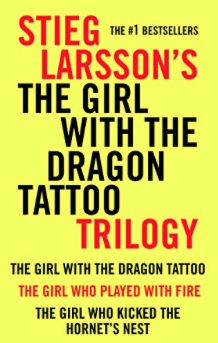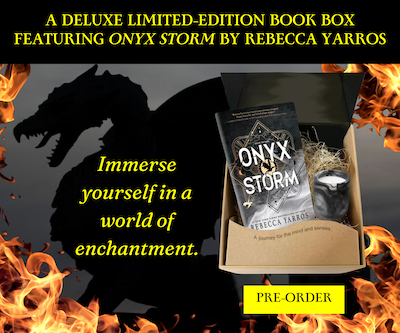The success of Wonder Woman has set off a feeding frenzy of sorts in New York and Hollywood for strongest women heroes. Well, way back in 2008 I conceived Texas Ranger Caitlin Strong, hero of soon-to-be nine thrillers with the publication of Strong to the Bone this December, as a female action hero adept at handling a role almost invariably given to men. Kind of like a female Jack Reacher, Lee Child’s wondrously iconic series stalwart.
With all respect to Wonder Woman, though, strong women are actually nothing new. Caitlin, in fact, comes from a pop culture tradition of similarly able females, either with their fists, their guns, their wits, and often all three. Let’s look at a few other wonder women who best define the female hero in pop culture.
Ripley in Aliens (Director’s Cut)
I specified the film’s Director’s Cut because it establishes that the root of the great Ellen Ripley’s maternal bond with Nute lies in the fact that her own daughter was already dead by the time she returned from her original deep space mission. That sets the tone for a relentlessly intense performance by Sigourney Weaver that’s every bit the equal of anything the likes of Arnold Schwarzenegger and Bruce Willis have ever done, climaxing with one of the greatest cinematic battles of all time that begins with the classic line, “Get away from her, you bitch!” The standard by which all female action heroes will forever be judged.
Beatrix Kiddo in Kill Bill, Parts One and Two
The old saying “Revenge is a dish best served cold” has never been better applied than in Quentin Tarantanio’s three-hour-plus magnum opus. From the very first shot, and continuing through some brilliantly staged action set pieces, Uma Thurman chews up the scenery, and pretty much every bad guy/girl who crosses her path, including the Crazy 88s and the other members of the Deadly Viper Assassination Squad she was once a part of. She is essentially playing the kind of role mastered by Clint Eastwood, a female Dirty Harry or a Woman (literally for a while) With No Name. A wronged hero who morphs into a force of nature in the course of her deadly quest.
Katniss Everdeen in The Hunger Games
via GIPHY
Speaking of quests, none is more noble than Katniss Everdeen’s when she steps in for her sister to, unwittingly, claim her place in destiny. Brilliantly played by Jessica Lawrence, like Ripley and Beatrix, Katniss is only doing what she feels she has to and what necessity has forced upon her. And through all the battles and PG-13 bloodshed, you never once get the feeling she’s enjoying it or wouldn’t prefer being back home in her district shooting rabbits instead of fellow competitors and, ultimately, forces of President Snow’s tyrannical government.
Dorothy Gale in The Wizard of Oz
Is there any more simple, noble or defining a quest than Dorothy’s? No, we’re not in Kansas anymore, we’re in Oz, a world whose beauty belies the darkness that lurks both above and below the surface. Judy Garland’s stellar performance as the farm girl turned waif is wondrously magical since all she wants to do is get home. If revenge is one classic theme, then returning home is another, dating all the way back to Homer’s The Iliad and the Odyssey. The book especially was a deceptively dark version of that classic, as it explored the nature and limits of childhood dreams and the fleeting nature of youth. That at the end of the Yellow Brick Road, in a world of endless enchantment, only a simple man lurks behind the curtain.
Princess Leia in the Star Wars movies
via GIPHY
Viewed in retrospect, the late Carrie Fisher’s over-the-top performance might seem clichéd and campy. But that shouldn’t detract from Princess Leia’s single-minded devotion to a mission that ultimately results in the sacrifice of her own home planet of Alderaan. Viewed through that lens, Leia overcomes the loss of everything by eventually defeating and destroying her tormenters. A wonderful metaphor for the abuse suffered by women, both sexual and psychological, in thrillers dating all the way back to Dracula. She turns the tables, doing whatever it takes and mastering whatever skills she needs to overcome the forces of the Empire that seeks to do to countless others what it has done to her.
Carrie Mathison in Homeland
In essence, Claire Danes’s brilliant portrayal of a CIA operative who triumphs in spite of her hardships and handicaps is a kind of post-modern combination of Dorothy and Leia. Like Dorothy, all she really wants is something she can call home but, like Leia, circumstances both tragic and otherwise will forever keep her from it. She never shies from the mission because, like all great heroes, the mission is what defines her and what keeps her going no matter the terrible emotional price she pays along the way. Her bipolar disorder brilliantly defines her own solitary quest as merely trying to live a normal life, never mind one fraught with risks and challenges normally assigned male former special operators searching for redemption or absolution. Carrie’s quest, on the other hand, is both a means and an end in itself, forming a treadmill off which she can never fully step.
Lisbeth Salander from Stieg Larsson’s “GIRL” series
 The palpable pain that defines Lisbeth, rooted in a dark and shadowy past, makes her at once both a reluctant and supremely effective fighter for justice against those who would victimize others like her. She is a character, and a hero, defined by her flaws and foibles, haunted by that which she can’t change but can use to fuel the violence she’s come to accept to dispense needed comeuppance upon evil. She knows that evil because she’s seen it firsthand, her struggle a perpetual one to ensure such evil does not come to define her soul.
The palpable pain that defines Lisbeth, rooted in a dark and shadowy past, makes her at once both a reluctant and supremely effective fighter for justice against those who would victimize others like her. She is a character, and a hero, defined by her flaws and foibles, haunted by that which she can’t change but can use to fuel the violence she’s come to accept to dispense needed comeuppance upon evil. She knows that evil because she’s seen it firsthand, her struggle a perpetual one to ensure such evil does not come to define her soul.




